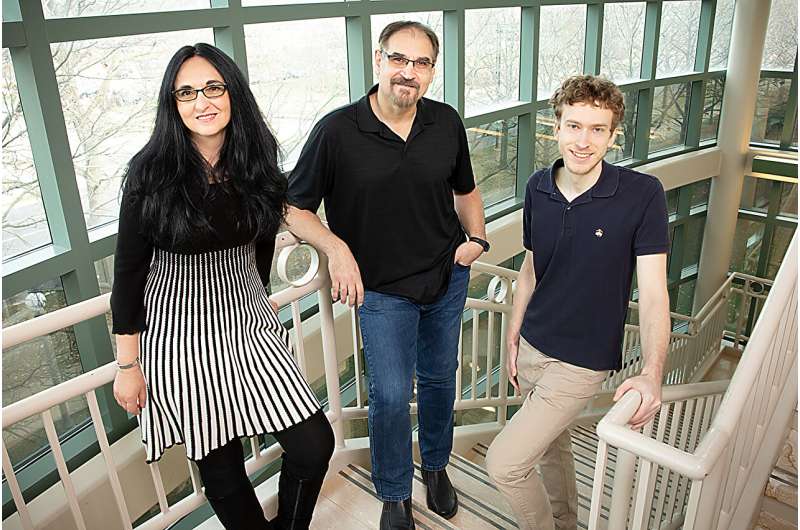This article has been reviewed according to Science X's editorial process and policies. Editors have highlighted the following attributes while ensuring the content's credibility:
fact-checked
peer-reviewed publication
trusted source
proofread
Study: People expect others to mirror their own selfishness, generosity

New research shows that a person's own behavior is the primary driver of how they treat others during brief, zero-sum-game competitions. Generous people tend to reward generous behavior and selfish individuals often punish generosity and reward selfishness—even when it costs them personally.
The study found that an individual's own generous or selfish deeds carry more weight than the attitudes and behaviors of others. The findings are reported in the journal Cognitive Science.
Previous research into this arena of human behavior suggested that social norms are the primary factor guiding a person's decision-making in competitive scenarios, said Paul Bogdan, a Ph.D. candidate at the University of Illinois Urbana-Champaign who led the research in the Beckman Institute for Advanced Science and Technology with U. of I. psychology professors Florin Dolcos and Sanda Dolcos.
"The prevailing view before this study was that individuals form expectations based on what they view as typical. If everyone around me is selfish, then I'm going to learn to accept selfishness and behave accordingly," Bogdan said. "But we show that your judgments of other people's behavior really depend on how you behave yourself."
To test the factors that guide expectations and drive behavior, the researchers conducted a series of experiments involving the Ultimatum Game, which captures how an individual responds to offers from another player proposing to split a pot of money with them. The game requires the proposer to suggest how much each person receives of a $10 pot. The receiver must decide whether to agree to that split or reject it. If the offer is rejected, neither participant receives any money. Rejection can be seen as a form of punishment, even though it costs both players, the researchers said.
Some people tend to be generous—or at least fair—when offering another person a portion of a $10 reward. Others try to take as much of the money as they can, offering lopsided splits that benefit themselves at the expense of their competitors.
When on the receiving end of an offer, generous people tend to accept only generous offers, while selfish people are happy with selfish offers—even when the other player's selfishness hurts them financially, the researchers found. Having the players switch between receiving and proposing offers allowed the team to explore the relationship between a player's selfish or generous behavior and their evaluation of other players' offers.
Further experiments showed that generous and selfish individuals tend to trust others who behave as they themselves do, regardless of the economic outcome.
"Participants will gain more money with a generous person. But a selfish person will prefer to play with someone who behaves as they do," Bogdan said. "People really like others who are similar to themselves—to a shocking degree."
The team also evaluated data from a previous cross-cultural study that found that individuals sometimes punish others for their selfishness or for their generosity in a collaborative game involving resource sharing.
They found that, when deciding whether and how much to punish others, participants were guided primarily by their own behavior and less by the pressure to conform. People who behaved generously tended to punish selfishness and people who put their own welfare first were much more likely to punish generosity—even in situations where one approach was more common than the other.
Cultural norms toward self-interest or generosity do influence people, as other studies have found, Florin Dolcos said. "But we are not only observers. This study is showing that we filter information about the world through our own view."
Those individuals whose behavior switched from generous to selfish over time were more likely to punish generosity and reward selfishness—but only after their own behavior changed, the team found.
This helps explain the phenomenon of social alignment, for better and for worse, Florin Dolcos said. "You may have groups of selfish people who are more accepting of other selfish people, and in order to be part of that group, newcomers might display the same behavior," he said.
Ultimately, the study finds that a person's own generous or selfish nature drives their behavior in many arenas of life, Sanda Dolcos said.
"This is not just about decision-making," she said. "It has practical relevance to many types of social interactions and social evaluations."
More information: Social expectations are primarily rooted in reciprocity: An investigation of fairness, cooperation and trustworthiness, Cognitive Science (2023). DOI: 10.1111/cogs.13326





















